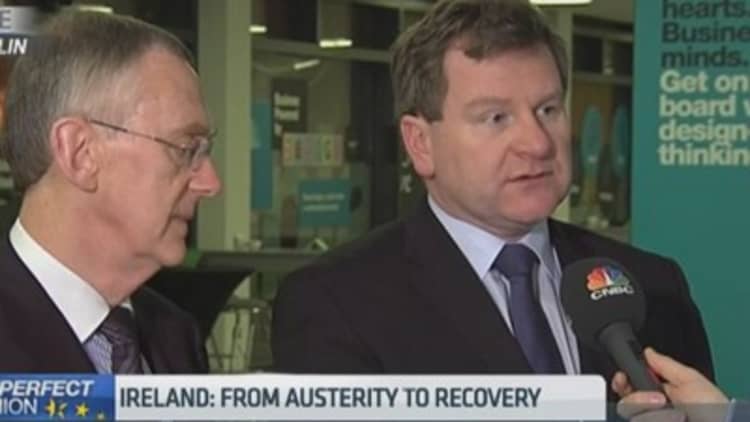
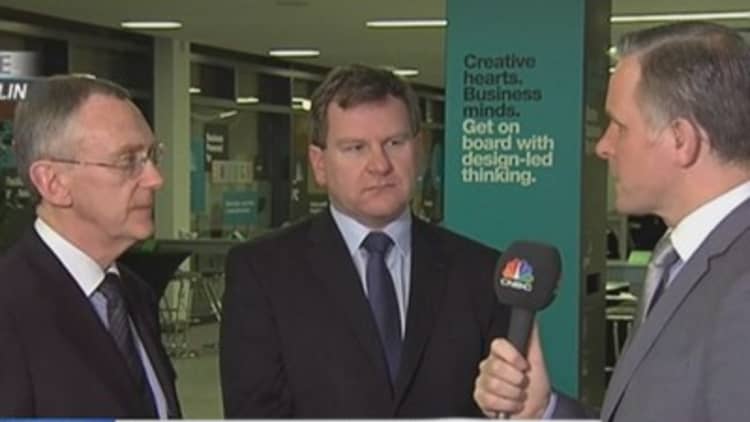
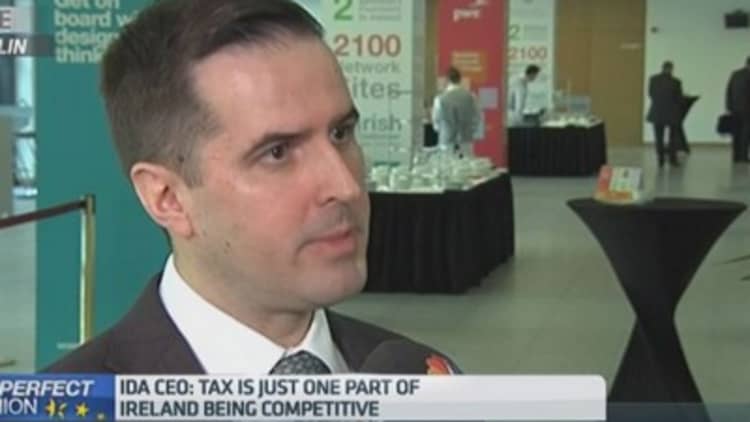
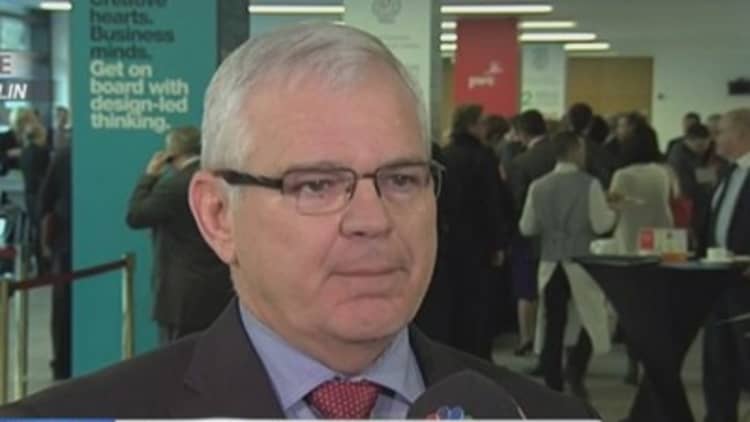
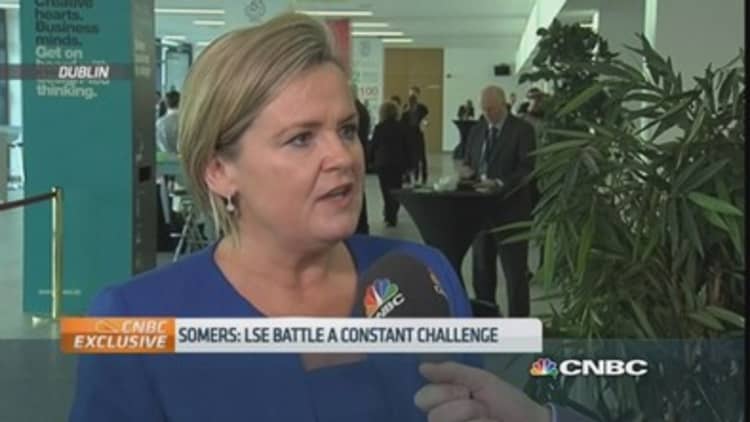
Ireland – often seen as the golden child of the struggling euro zone -- has been hailed as a great place for growth, but chief executives from the country told CNBC it needs to remain competitive in order to thrive.
"Ireland has come a long way," Danny McCoy, chief executive of IBEC (the Irish Business and Employers Confederation), which is hosting a business conference in Dublin Wednesday, told CNBC.
"One of the factors not given much notice is the huge balance of payments surplus in contrast to the U.K. and U.S. which is indicative of the business community that's been trading very successfully here over the last couple of years."
But he admitted there were problems.
"We are a trading nation and so any upset at the European and international level is going to affect Ireland," he said. "But we still are looking at a very strong growth rate in 2015 and all the indicators are at record levels, such as manufacturing and consumer sentiment."
Read MoreEuro zone manufacturing growth flimsy, Ireland shines
Ireland was hailed as a poster-child for austerity after its relatively speedy recovery from its financial crisis – caused by a burst housing bubble - and following its international bailout in 2010.
Fast forward a few years, and, after implementing tough austerity measures, the country exited its financial aid program in 2013. Last year, it was the fastest growing economy in the European Union, with gross domestic product (GDP) expansion of 4.8 percent.
Read MoreIreland: Real recovery or all blarney?
This growth rate is something that countries like Greece - which is currently pushing back against austerity measures – can only dream of.
This year, the European Commission predicts Ireland's economy will grow by 3.5 percent – a slower expansion rate, but one still way ahead of its closest neighbour, the U.K., and the euro zone's largest economy, Germany.
'Not that competitive'
However, the chief executive of one of Ireland's more prominent businesses, packaging giant Smurfit Kappa, told CNBC Wednesday that it was critical for Ireland to remain competitive, particularly in terms of labor costs which he said were "not that competitive internationally."
"The danger is that we kick the ball away by basically starting to reward ourselves excessively again," CEO Gary McGann said.
Read MoreIrish budget: Death knell for 'Double Irish'?
"Obviously, there are a lot of people who have suffered during the recession and do need some relief, but the way to get that relief cannot be (based) on the cost of labor and input costs for small and medium-sized enterprises which are the backbone of the economy."
Unemployment also remains an issue for the country, although the jobless rate has fallen from 12.1 percent in January in 2014 to 10 percent in the same month this year. It also has a large debt pile, at around 110 percent of GDP, according to the European Commission.
McCoy conceded that debt levels were high but insisted the growing economy needed more government investment in infrastructure, especially through public-private partnerships. "Now's the time to be building and building for the future," he argued.
When it comes to inward investment, one of the key reasons that Ireland has remained an attractive is its low corporate tax rate of 12.5 percent.
International businesses like Apple and Google have also taken advantage of what was known as the "Double-Irish" tax loophole which allowed international companies to pay little tax on their international earnings.
Bowing to pressure from the European Union, however, Ireland said it would not allow new companies to use this loophole from 2015, and that it would be phased out for companies already using it by 2020.
"I think the position of Irish businesses is that we want to be a low-tax environment, not a no-tax one," McCoy said.
"I think the government is really dealing with that. We're on the front-foot here…and I think Ireland is going to play fair here but is going to play aggressively here too."
- By CNBC's Holly Ellyatt, follow her on Twitter @HollyEllyatt. Follow us on Twitter: @CNBCWorld



